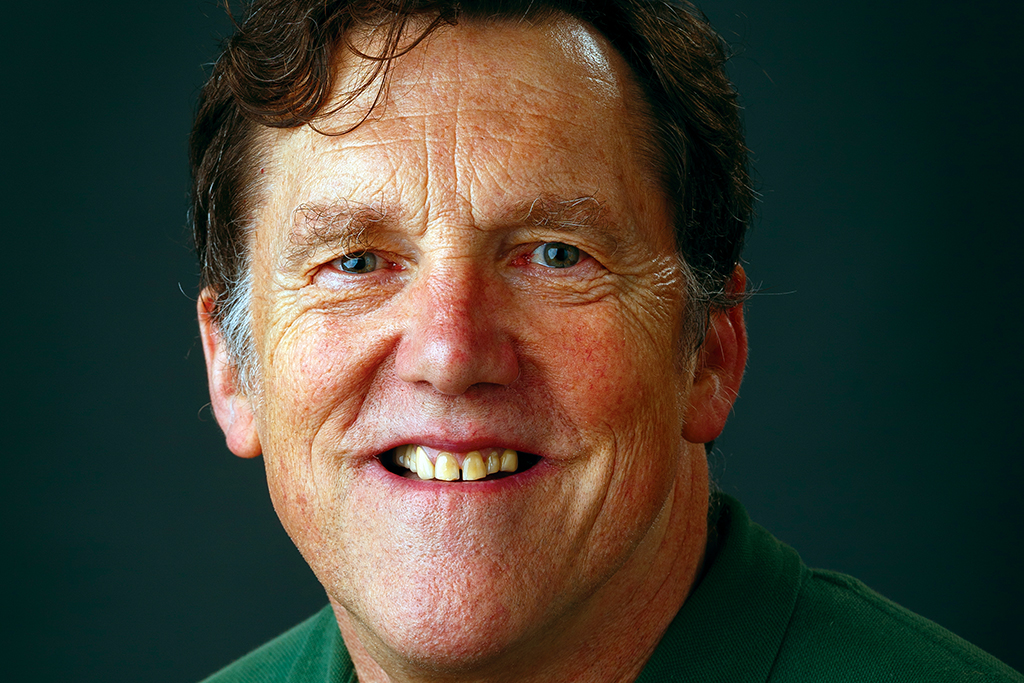For four decades Alan Chadwick “Chad” Ray has been motivating Central College students to seek answers to life’s biggest questions, the same reason Ray himself entered the field of philosophy. Growing up in a military family where dinner conversations often turned to deep issues, Ray began in high school to read treatises like de Tocqueville’s Democracy in America and Marx’s Communist Manifesto. As an undergraduate at Yale University, he discovered Plato.
“I did well in economics, but philosophy examined more about what is really best for oneself and society, and how a wise person would live,” Ray recalls of what would become his life’s work. He wrote his dissertation on Plato’s metaphysics and earned a Ph.D. at Northwestern University in 1976, “about the time the humanities market dried up.”
“When I came to Central, I think one standard approach to teaching philosophy amounted to seeking with students to discover through readings and criticism where a really smart person would come down on the big questions; the teacher ended up clearly advocating for a particular position and nudging the students,” said Ray. “I have been more interested in seeing with students how competing theories and world-views can be cast in their own most attractive lights. Most people know nothing about academic philosophy when they get to college, but some have a commitment to or at least acquaintance with Christianity. Part of my job is to shine a light on the philosophical relevance of whatever ideas or heritage they may bring to the study of academic philosophy. Even if what they bring to the table strikes me as wrong-headed, fairness requires me to help them understand it in as sophisticated a form as possible. Sometimes of course they discover that even at their most persuasive the ideas they love no longer strike them as defensible.”
It’s that balance with tradition that colleague David Timmer calls one of Ray’s “most important contributions to Central College.”
“Chad delights in our religiously diverse community, while making clear that he thinks and speaks out of a deep commitment to the Christian faith. He can be a bulldog pursuing a point; but it’s never about him. It’s about following a reasoned train of thought wherever it leads. You can depend on him to say what others might be thinking but don’t dare say aloud. He has emotional range as well as intellectual heft—he can empathize with a student, see the person behind the argument and laugh at himself.”
Ray, whose area of specialty is ethics, has taught multitudes of beginning philosophy students from Plato and other “friends,” but also finds special satisfaction in classes with those who are already hooked. His impact on both beginners and scholars is reflected in the words of a former student, today a surgeon, who recalls Ray’s instilling in him “the world of ideas. It is the most awake and alive I have ever been. I got to spend my college days with Aristotle, Sartre, Nietzsche and Ray. God bless his impact in my life!”
Since 2002, Ray has been the holder of the endowed Dr. Jacob and Gela Schnucker Sessler Chair in Philosophy and Religion, which especially honors teaching. “If I’ve been successful as a teacher,” Ray said, “it’s because I mix levity with gravity. I take it seriously but not too seriously—a little sizzle with the steak.”
Throughout his 41-year academic career, Ray has published in journals of thought, presented at regional conferences of the American Philosophical Association and served as president of the Iowa Philosophical Society. One of his biggest achievements came through institutional service when Ray chaired the self-study committee during the last North Central Association of Colleges and Schools reaccreditation process.
“To have had a role in steering the faculty through that process and to be able to support the claim that we are doing our best, I consider one of my career achievements,” Ray said. “An organization needs to look at itself constantly, recognizing that assessment and revision never end.”
In retirement, Ray looks forward to reading what he likes, when he likes, perhaps pursuing non-academic writing, and volunteering in the local community.


